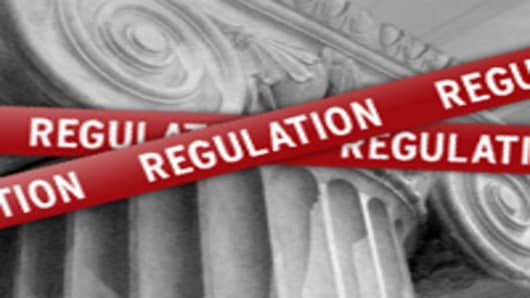In the years that led up to the financial crisis, the OCC fought state attempts to regulate mortgages by asserting state law could not interfere with nationally chartered banks. The states, it claimed, were pre-empted by federal law from regulating these banks.
This had the immediate consequence of stymieing attempts to rein in predatory and irresponsible mortgage lending by nationally chartered banks and their state-chartered operating subsidiaries. But it also got in the way of the regulation of state banks. State lawmakers were hesitant to pass laws that would disadvantage their home teams. Pre-emption created a race to the regulatory bottom.
It also put pressure on the banking sector to consolidate. Since a national charter was a ticket out of local regulation, nationally chartered banks were at a competitive advantage. The OCC folks prided themselves on the existence of the competitive advantage, actively marketing the “national charter” to “clients.” That’s what they called the banks they regulated — “clients.” This competitive advantage, of course, made it easier for the nationally-charted banks to acquire state-chartered banks.
You’d think the reforms that followed the financial crisis would have eliminated this rogue agency with its aggressively centralizing interpretation of constitutional federalism. Conservatives should oppose it on the grounds that it interferes with the traditional rights of states. Liberals should oppose it on the grounds that it undermines attempts at consumer protection.
But the OCC survived Dodd-Frank pretty much intact. And now, as Simon Johnson explains over at Economix, the OCC is up to its old tricks again.
In a letter on May 12 to Senator Thomas Carper, Democrat of Delaware, the agency asserted that its pre-emption regulations are consistent with the Dodd-Frank Act (see this interpretation by Sidley Austin, a law firm, which I draw on). There is a lot of legalese in the letter but the basic issue is simple — are states allowed to protect their consumers vis-à-vis national banks, or do they have to rely on the Office of the Comptroller of the Currency, despite its weak track record?
The comptroller’s office is clear — the states are pre-empted, meaning that national comptroller regulations will always overrule them on the issues that matter. (As a technical matter, the issue comes down to what is known as visitation: whether state-level authorities can gain access to bank documents if the bank or the comptroller’s office has not already determined that there is a problem.)
The OCC still enjoys a lot of political and scholarly support, remarkably enough. The basic contention in favor of the OCC and pre-emption is that it allows banks to choose between between regulatory regimes, creating regulatory competition that—at least in theory—could lead to more efficient regulation. Some economists say that standardized national regulation prevents local protectionism, reduces the price of credit while making loans more available to borrowers, and even makes banks more efficient.
Do you see the contradiction here?
Our dual system of state and national charters for banks is supposed to promote competitive, regulatory diversity. Instead, it is creating a centrifugal force on banking — undermining local efforts to impose variant regulation and encouraging consolidation. We’re getting a more homogenized banking and regulatory system instead of a more diverse one.
This homogenization is an extremely dangerous source of systemic risk.
Bad decisions of a single bank are unlikely to topple the financial system. The collapse of Lehman Brothers would not have led to a systemic panic if every player in the financial system did not know or suspect that almost every other important financial institution had made the same mistakes as Lehman. And everyone knew this because everyone knew the regulatory system loaded the dice in favor of these mistakes.
The National Bank Act of 1864 was passed under the administration of Abraham Lincoln in order to raise money to fight the Civil War and create a national currency. We actually did away with the national currency just a few decades later, when we created Federal Reserve notes. Maybe it’s time to ask whether we should kick out the other leg of the National Bank Act and abolish the national charters.
________________________________________
Questions? Comments? Email us atNetNet@cnbc.com
Follow John on Twitter @ twitter.com/Carney
Follow NetNet on Twitter @ twitter.com/CNBCnetnet
Facebook us @ www.facebook.com/NetNetCNBC



